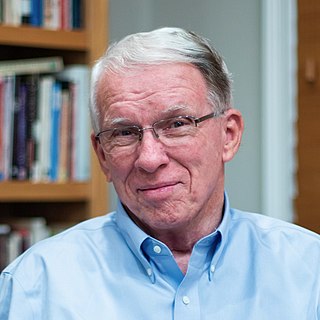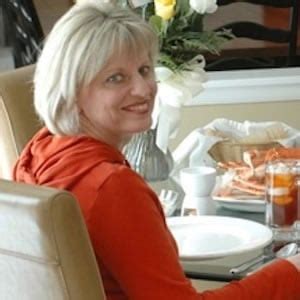A Quote by Charles Stanley
Each of us will eventually give away all our earthly possessions. How we choose to do so, however, is a reflection of our commitment to the kingdom of God.
Related Quotes
Each one of us has some kind of vocation. We are all called by God to share in His life and in His Kingdom. Each one of us is called to a special place in the Kingdom. If we find that place we will be happy. If we do not find it, we can never be completely happy. For each one of us, there is only one thing necessary: to fulfill our own destiny, according to God's will, to be what God wants us to be.
Giving up everything must mean giving over everything to kingdom purposes, surrendering everything to further the one central cause, loosening our grip on everything. For some of us, this may mean ridding ourselves of most of our possessions. But for all of us it should mean dedicating everything we retain to further the kingdom. (For true disciples, however, it cannot mean hoarding or using kingdom assets self-indulgently.)
We cannot count on God to arrange what happens in our lives in ways that will make us feel good.We can, however, count on God to patiently remove all the obstacles to our enjoyment of Him. He is committed to our joy, and we can depend on Him to give us enough of a taste of that joy and enough hope that the best is still ahead to keep us going in spite of how much pain continues to plague our hearts.
Material possessions, in themselves, are good. We would not survive for long without money, clothing and shelter. We must eat in order to stay alive. Yet if we are greedy, if we refuse to share what we have with the hungry and the poor, then we make our possessions into a false god. How many voices in our materialist society tell us that happiness is to be found by acquiring as many possessions and luxuries as we can! But this is to make possessions into a false god. Instead of bringing life, they bring death.
I testify that no one of us is less treasured or cherished of God than another. I testify that He loves each of us—insecurities, anxieties, self-image, and all. He doesn’t measure our talents or our looks; He doesn’t measure our professions or our possessions. He cheers on every runner, calling out that the race is against sin, not against each other.
Each of the major sciences has contributed an essential ingredient in our long retreat from an initial belief in our own cosmic importance. Astronomy defined our home as a small planet tucked away in one corner of an average galaxy among millions; biology took away our status as paragons created in the image of God; geology gave us the immensity of time and taught us how little of it our own species has occupied.
We do not choose to be born.We do not--most of us, choose to die, or the times or conditions of our death. But within all this realm of choicelessness, we do choose how we shall live--Courageously or in cowardice, Honorably or dishonorably, With purpose or adrift. We decide what is important and what is trivial. What makes us significant is what we DO, Or REFUSE TO DO. WE DECIDE and WE CHOOSE--and so we give definition to our lives.
God never gives up on us no matter how hard we try to get ourselves loose. God does not let go. That doesn't mean he controls everything we do. It doesn't mean he puts a bridle on us and leads us by the nose. He gives each one of us free will and common sense and a spirit that can communicate with his. When we go through afflictions, he allows us to choose our response. But no matter what our response may be, he sticks around to the bitter end.
In the space between stimulus (what happens) and how we respond, lies our freedom to choose. Ultimately, this power to choose is what defines us as human beings. We may have limited choices but we can always choose. We can choose our thoughts, emotions, moods, our words, our actions; we can choose our values and live by principles. It is the choice of acting or being acted upon.
It is not what we do that matters, but what a sovereign God chooses to do through us. God doesn't want our success; He wants us. He doesn't demand our achievements; He demands our obedience. The Kingdom of God is a kingdom of paradox, where through the ugly defeat of a cross, a holy God is utterly glorified. Victory comes through defeat; healing through brokenness; finding self through losing self.
All men and women are born, live, suffer and die; what distinguishes us one from another is our dreams, whether they be dreams about worldly or unworldly things, and what we do to make them come about... We do not choose to be born. We do not choose our parents. We do not choose our historical epoch, the country of our birth, or the immediate circumstances of our upbringing. We do not, most of us, choose to die; nor do we choose the time and conditions of our death. But within this realm of choicelessness, we do choose how we live.
Our days are numbered. One of the primary goals in our lives should be to prepare for our last day. The legacy we leave is not just in our possessions, but in the quality of our lives. What preparations should we be making now? The greatest waste in all of our earth, which cannot be recycled or reclaimed, is our waste of the time that God has given us each day.


































